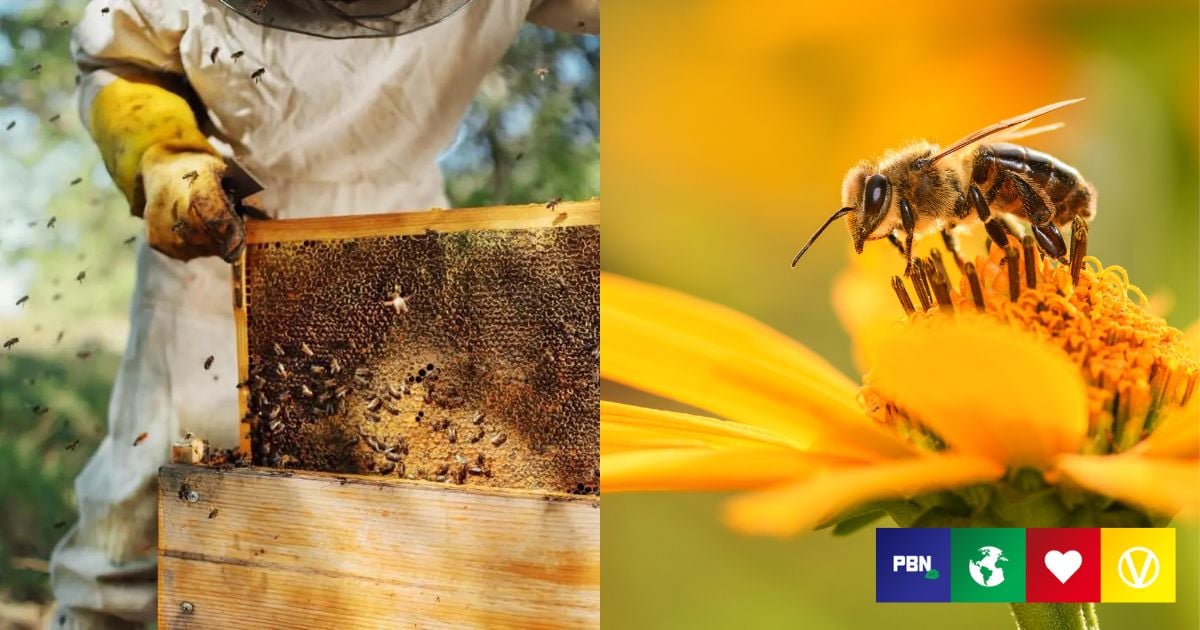- Toasted
- Posts
- Buzzing with Hope: A Bee Vaccine to Save Our Pollinators
Buzzing with Hope: A Bee Vaccine to Save Our Pollinators
A Promising Solution to Protect Bees from Disease and Preserve Our Food Supply
Are you ready for some buzz-worthy news? Scientists have developed a new vaccine to help protect bees from American foulbrood, a bacterial disease that can devastate colonies and threaten our food supply. This breakthrough could be a game-changer for bees, which are facing numerous challenges such as habitat loss, climate change, and pesticide exposure.
Bees play a vital role in our ecosystems and food systems, pollinating crops and producing honey. Without them, many of our favorite foods like almonds, apples, and cherries would be much harder to come by. In fact, bees are estimated to help produce $15 billion worth of crops in the US each year. That's why it's so important to find ways to protect them from the threats they face.
The bee vaccine works by incorporating dead versions of the Paenibacillus larvae bacterium into royal jelly, a sugar feed given to queen bees. The vaccine is then deposited into the bees' ovaries, providing immunity to developing larvae as they hatch. This innovative approach could help improve the health of bee colonies and prevent the spread of American foulbrood.
But the bee vaccine is just one part of the solution to protect bees. We also need to address other threats such as habitat loss and pesticide exposure. By supporting organic farming practices, planting pollinator-friendly gardens, and reducing our use of harmful pesticides, we can help create a safer and healthier environment for bees to thrive in.

To eat honey, or not to eat honey, that is the question
While honey is a delicious natural sweetener, some people choose not to eat it for ethical or environmental reasons. One argument against eating honey is that it is a product of exploitation, as bees work hard to produce it and may suffer as a result of the process.
Commercial beekeeping operations often involve practices such as replacing honey with sugar water or high-fructose corn syrup, which may not provide the same nutritional value for bees. These practices can also disrupt the bees' natural behavior and lead to stress and disease.
In addition, honey production can contribute to environmental issues such as habitat loss and the spread of invasive plant species. Beekeeping operations may also use pesticides that can harm bees and other beneficial insects, as well as contribute to the decline of bee populations.
However, it's worth noting that not all honey production is the same. Some beekeepers use sustainable and humane practices that prioritize the health and well-being of the bees. These beekeepers may also use honey production as a means to support conservation efforts and promote biodiversity. UNESCO has even launched a program to support rural women in beekeeping entrepreneurship (Women for Bees).
Ultimately, the decision to eat or not eat honey is a personal one that depends on individual values and beliefs. While there are valid arguments on both sides, it's important to consider the broader context of honey production and its impact on bees and the environment.
For more on the Vegan arguments for not eating honey, check the following article:
Thanks for reading this week’s edition of Toasted! We hope it inspired you to think about the important role bees play in our ecosystem and the many ways we can support their health and well-being.
Beee-yeee,
Caroline and Utkarsh

Reply